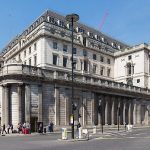The one kind of immigration that's not so great
I spend a lot of my life arguing that immigration isn’t an economic problem. Immigrants don’t steal our jobs – with every pair of hands comes a mouth. The stuff they buy creates jobs.
However, there is one kind of immigration which, if I’m honest, does cause an economic problem. Today, the Sunday Times Rich List is out. There are two notable things. The first is that the richest 1000 people are about 9% richer than they were last year – if austerity is designed to make the rich richer, it’s working.
And the second, most widely reported fact is that three of the five richest people in the country are Russian. The term ‘Russian oligarch’ is one which has become a part of the British lingo over the last few years, and a quick search on Google Trends shows that since 2011, it’s rapidly entered the public consciousness. Ignore for a moment the way that the shock doctrine imposed on Russia in the 90’s led to the existence of these oligarchs, and consider what this all does to the lives of people in Britain.
Petronella Wyatt wrote a piece in the Daily Mail (warning – Daily Mail link) earlier this month “it’s hard to be posh but poor” which rightly attracted much derision. But buried in it, there was an important point about the London housing market – and something which effects all of us, not just those who are struggling to get by on £100k.
She says:
“I earn twice as much now as I did in my late 20s, but back then I lived in a way that would be impossible now.”
When discussing how an ex-boyfriend had to sell his house and his art collection, she says:
‘No, he still earns about £200,000. It’s just you have to be an oligarch to live the way he used to.’
Now, obviously the way that the rich have been squeezed out of the market for luxury homes and goods by the mega rich is obviously not really a problem. But it’s important to think about the broader impact of this.
If the richest people in the world increasingly move to the UK – to London – then they will be able to easily out-compete our own domestic rich for the most expensive houses. The rich people who were here then take a step down the ladder, and those below them do, and so on.
The result is that the London property market – already ridiculously expensive – becomes even more inaccessible. Building an economy on the back of a property market is foolish. But building it on the back of a property market that most can’t get into is dangerous.
Much of Osborne’s economic strategy has been to make London an attractive global home for the billionaires of the world. The result isn’t jobs for people in Britain. It’s just that everything becomes more expensive for us. Successive governments have sought to make our country a playground for billionaires. It’s no wonder that there’s less room on the swings for the rest of us.


Also worth mentioning that the UK immigration system is set up so that it’s very easy to get a visa if you’re rich, and very difficult if you’re not — in fact, increasingly difficult the less money you have.
3 of the top 5 richest people in Britain are Russian Oligarchs (ie. Profiteers & Plunderers unwelcome in Russia), together worth over £33 Billion.
Like Cyprus, Britain should freeze & seize most of their ill-gotten wealth, & make clear that crooks are not welcome here either!